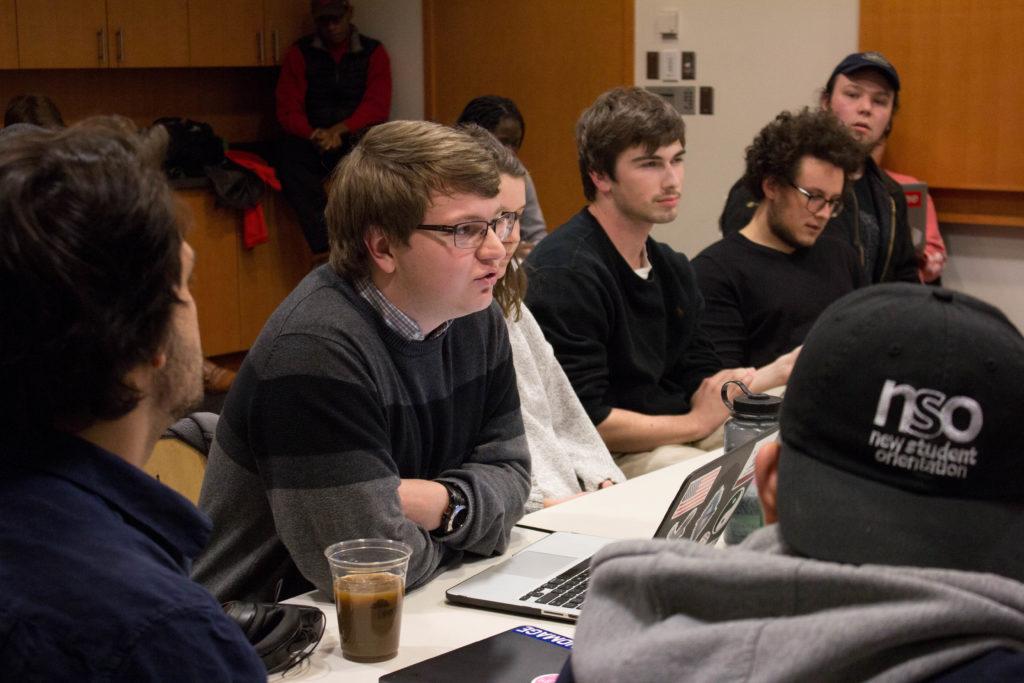
SGA representatives at Wednesday’s campus council meeting continued to discuss the student protests of a talk given by Ken Adelman ’67 and the subsequent meetings of President Raynard Kington with the student protesters.
SGA Senator Riley Murphy ’19 began the conversation by explaining each of the events related to Adelman’s visit. Protesting students attended Adelman’s talk, sitting quietly and holding signs during his presentation. During the Q&A session after the presentation, students questioned him about his role in harassing a black woman and her legally blind partner, as well as his apology, which many students found insufficient. The end result, Murphy stated, was a series of conversations between President Raynard Kington and the activists that occupied the room during Adelman’s talk.
After the event, Murphy continued, Kington had office hours with SGA Assistant Treasurer Zach Steckel ’18, and Murphy and Delegate Lily Bohlke ’19 attended. Associate Vice President of Student Affairs Andrea Conner reached out to SGA President Anita DeWitt ‘17 by text message to organize a group of students to have another conversation with Kington. DeWitt, Bohlke and a few other students attended this meeting in Nollen House.
In each of the meetings between students and Kington, Kington responded to the student’s action in a way that many of them found personally offensive. The dissonance between the administration’s response after the fact, and the text sent by Andrea Connor, created a strange, liminal space in which the administration both agreed and disagreed with the same problem.
Murphy then reached out to Dean Michael Latham to discuss how to approach creating a dialogue with speakers about past transgressions and the role that students play in discussing how people overcome their own faults.
While Murphy maintained that the action against Adelman was not focused on his political ideologies, Senator Jenkin Benson ’17 argued that we could not ignore the “political reality of [Adelman’s] neo-conservatism” and the role that it played in both the talk and as the catalyst for the harassment incident in 1967.
While many students agreed that the assertion that Kington and the administration had acted inappropriately, the dialogue shifted to the possibilities for in-person reflections with speakers who come to campus, holding them responsible to their previous actions, allowing actual discourse between polarized political perspectives and providing constructive criticism on the student action itself.
Kahlil Epps ‘18, president of Concerned Black Students [CBS] and senator, raised the issue that a majority white activist group acted on behalf of the black population in Grinnell without reaching out to CBS and other students of color to address the Adelman concern. Epps noted that the efficacy of the action was impacted negatively due to the lack of communication between the protestors and CBS, and that going forward with a focus on communication between communities can provide the most effective solutions to problems on campus.
The conversation finished with a proposition by Steckel to write a resolution about next steps to be discussed at Reform Committee’s meeting next Wednesday. Steckel encouraged students to reach out to him and members of Reform Committee if they would like to provide input on next steps.
—Lily Bohlke is a News editor of the S&B





















































